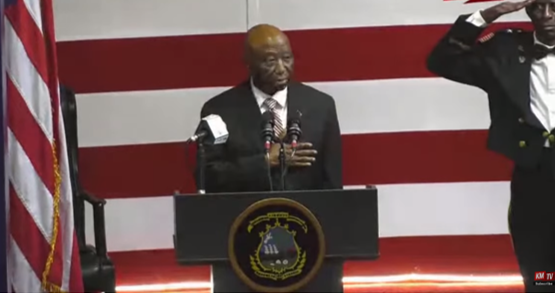By J. Dominic Farley
Liberia’s newly inaugurated President Joseph Nyuma Boakai has demonstrated what political pundits described as a ‘high degree of deception and hypocrisy’ on the establishment of war and economic crimes courts. President Boakai strongly advocated for the court during the campaign period, but now he wants to back pedal.
Pres. Boakai’s double-standard posture to the plight of many Liberians who lost their lives during the 14-year devastating civil war was accentuated during his two last public addresses to the nation within a week at the Capitol Building recently.
During his inaugural address on the grounds of the Capitol Building on January 22, 2024, the President, many said, felt short of reaffirming his initial advocacy on the establishment of war and economic crimes court, and made a U-turn when he told the gathering, “We have decided to set up an office to explore the feasibility for the establishment of War and Economic Crimes Court (WECC) to provide an opportunity for those who bear the greatest responsibility for war crimes and crimes against humanity to account for their actions in court.”

To many critics of the President, his assertion is an about-face from a straight-forward move to create a court that will ensure justice for Liberians who died during the 14-year civil crisis.
In another breath, the President said, “An estimated quarter of a million of Liberians perished in the war,” adding, “we cannot forever remain unmoved by this searing national tragedy without closure. We shall seek advice and assistance from the Office of the United Nations Secretary General to ensure that the court, if found feasible, will be in compliance with highest standards of similar courts everywhere.”
But critics see such move as a mere charade only intended to create a false hope to victims of the war. Seven days later, Pres. Boakai appeared again at the Capitol Building to present his national agenda to the lawmakers for the next one year but failed miserably to clearly articulate the need for accountability in Liberia, particularly on the issues of war crimes.
Pres. Boakai doubted the feasibility of war crime court in Liberia, saying, he shall seek advice and assistance from the Office of the United Nations Secretary General to ensure that the court, “if found feasible,” will be in compliance with highest standards of similar courts everywhere.” How can President who advocated for the war crimes court not knowing its feasibility.
Although, repeatedly, members of the international community, including the United States of America have emphasized the need for accountability in Liberia including the establishment of a war and economic crimes court which they believe is the prerogative of the Liberian people and their government.
Political observers say, despite the United States government’s readiness to assist Liberia and expressing his position to stands ready to support Liberia’s decision to establish war and economic crimes court, Pres. Boakai doubts the feasibility of the process.
In the last six years, Pres. Boakai and his supporters dedicatedly agitated strongly against the regime of then President George Manneh Weah for not establishing the war and economic crimes court. They gave Liberians he impression that establishing the war and economic crimes court was something that was easily achievable.
Liberia’s Truth and Reconciliation Commission (TRC) recommended a war crime tribunal to prosecute those who bear greatest responsibilities during the Liberian civil war. Since then, no Liberian President has mustered the courage to radically push for the establishment of a war and economic crimes courts in Liberia, although each advocated for it when they wanted the highest seat of the land.
But Tensions have begun to build up as callers on various radio talk-shows are expressing total disappointment in the manner and form President Boakai is approaching the war and economic crimes court issues. Some callers are insinuating that Pres. Boakai’s method and strategy on the establishment of the much-anticipated war and economic crimes court was intended to evade the demand of the Liberian people.
Pres. Boakai’s political ally, Nimba County’s Senator, Prince Y. Johnson quickly expressed his indignation about the attempt of the Boakai administration to pursue and speak about the establishment a war crime court in Liberia. Sen. Johnson is identified in the TRC report as one of those who bear greatest responsibility during the Liberian civil war and was recommended for prosecution.
It is not clear whether Boakai will muster the courage to strongly advocate for such a criminal tribunal given the level of political marriage between him and Sen. Johnson, which ultimately culminated into the production of Boakai’s Vice President, Jeremiah K. Koung.
Although Pres. Boakai acknowledged that the 14-year civil war has perhaps been the most traumatically challenging, he expressed uncertainty about the “feasibility” of establishing war crimes court in the country.

